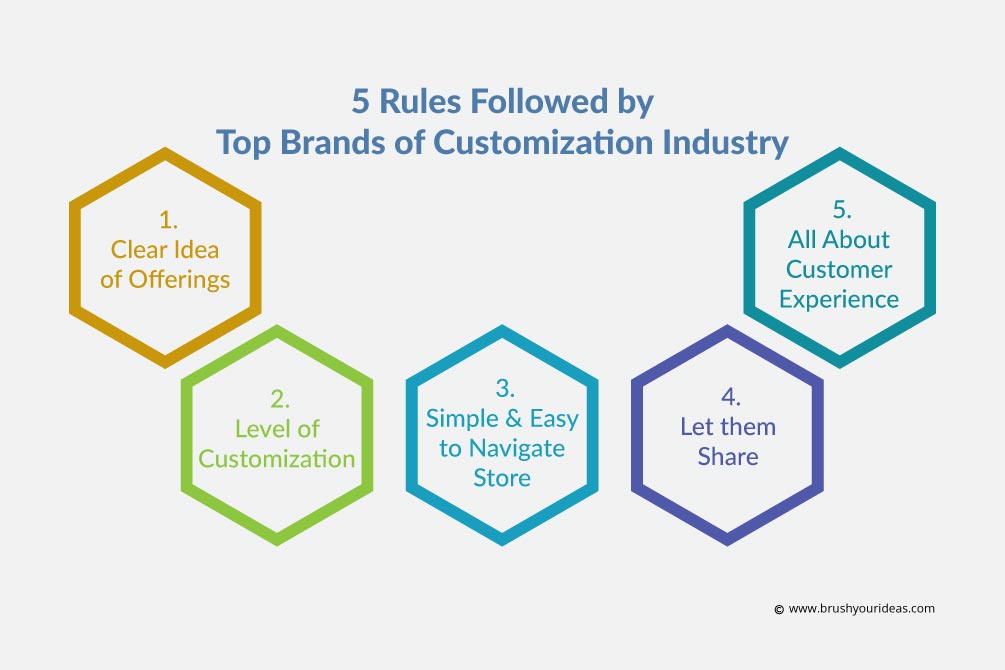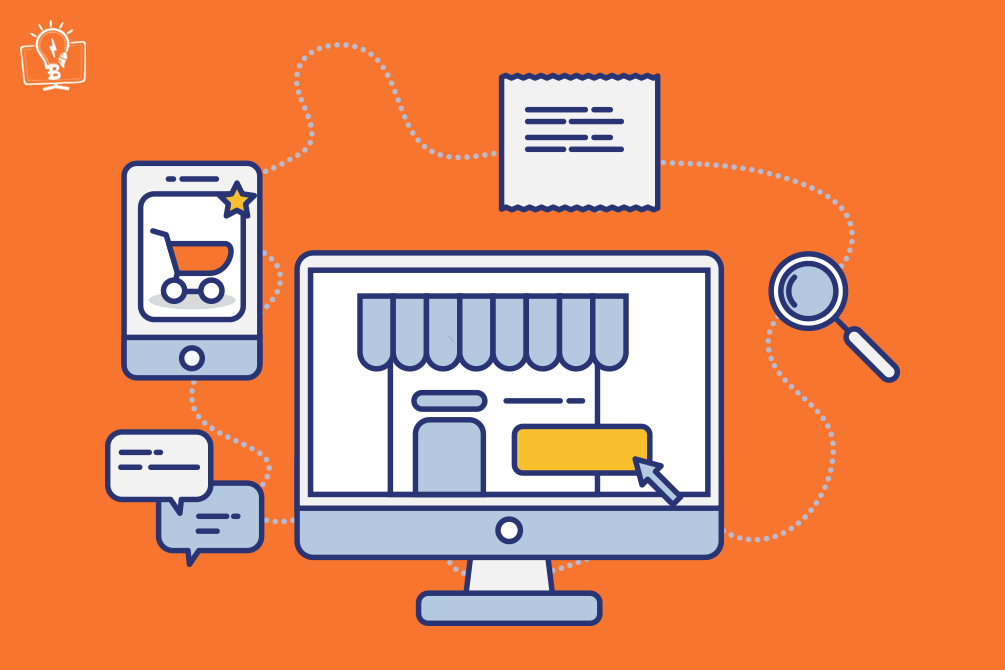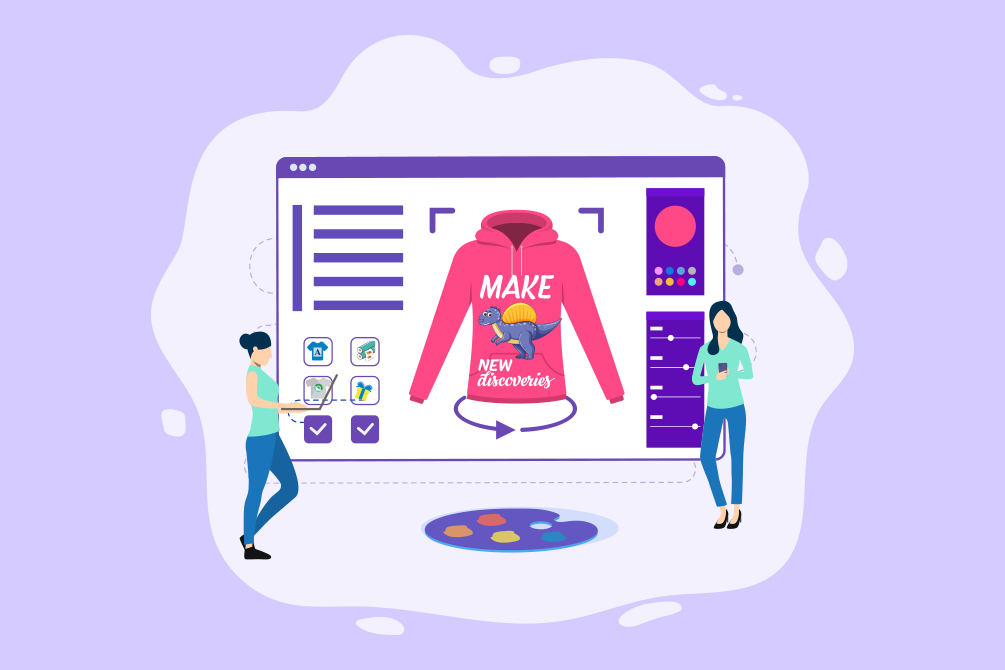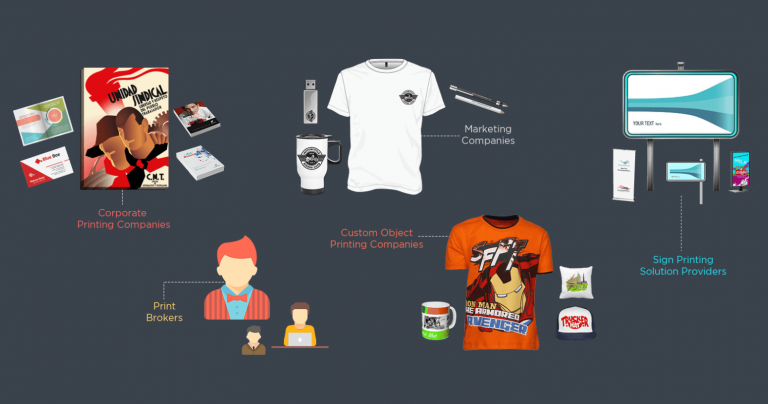Nobody likes to buy simple, plain, boring and vague products anymore. Every product now needs to have that charm and freshness to appeal to your customers.
To get the success in e-business you need to unlearn the conventional way of offering products on your store. Because everybody does business that way today. People need something different. Product customization is one such phenomenon in the gifting and lifestyle industry that is creating a buzz in the market lately.
Big brands have given their business a leap of massive growth by providing the customization option for their products.
Considering the studies from Bain, out of 1,000 online shoppers less than 10% have tried customization while 25% to 30% are interested to try customizing the products.
Now, we don’t have the exact idea about the market size of product customization but imagine this: If out of total online shoe sales, we count 25% of them as customized products then it aggregates to $2 billion per year. And that is just the personalized shoe industry!
When we observed big brands like Amazon, Coca-Cola leveraging the success of customized products, we gathered the five rules from their methodologies which helped them gain success.
So, if you are planning to give your customer base the option of customizing the products, then this blog is just for you.
5 Rules/Practices followed by Top Brands of Customization Industry
Big brands like Nike, Vans, Timberland, The North Face, etc. have taken product customization to the next level which has contributed to their success. These brands are successful product customization examples. And we tried to understand how these brands work and offer customization and we came up with these 5 rules.
The rules that might have helped these brands create a wholesome customer experience.
Rule 1: A Clear Idea About Your Offerings

When you are offering customization to your customers, you are involving them in the process of creation. This gives the customers a sense of ownership and they could relate to the products they purchased on a deeper level. This way you are creating an experience for them. An experience which is exclusive to your products.
So, indirectly you will be creating your brand image with the customization. And to make it more impactful, you will have to have a clear idea about your customization offerings. For example, The North Face, a renowned brand of activewear and outdoor sports gear, provides their customer base with many color options for fleece, taslan, and other customization options including zippers, zipper pulls, etc.
The North Face offers customization of the details which adds the “stand out” feel to the customer experience.
Rule 2: Identify How Much Customization You Need to Offer
The companies or brands that provide product customization have 10-15 core products and around 100-150 ways to customize the products. Sooner or later, the customer is going to get bored with the products. And that wouldn’t be because you offered only 100 ways to customize the product, but because there weren’t many products to choose from.
So, while scaling your customization shop, make sure you are growing not only in the horizontal direction but in the vertical direction also. What we are trying to say is that don’t focus only on offering personalization, but keep an eye out for product development and adding new ones too.
With the current speed of changing trends, it is necessary to keep your product list updated and according to the choice of your customer base.
Rule 3: Keep the Overall Experience Simple for Users
“Simplicity of Approach is always best.” – Charlie Chaplin
When dealing with product customization, you will have to be careful. Make sure you are not overdoing it. Once you are set with your core products and the level of customization you are offering, you need to present it in a very simple and sophisticated manner.
If your e-store is not aesthetically pleasing, light on the eyes and easily navigable, then your customers will have a difficult time on your website. This can and will create a negative effect on their mind. Hence creating a negative picture for your brand.
So, make sure you are keeping it real and simple.
Pro Tip: To make your e-store clean and sleek, keep your word count limited. The more the words, the more cluttered your store would look. Instead, go with the emotional short sentences which are more powerful and skimmable. You can always go with impactful pictures because, at the end of the day, pictures are more powerful than words.
Rule 4: Make People Share Their Creations
Over 1 billion people use Instagram on a monthly basis. Among these billion people, over 500 million people are active daily on Instagram. Those are some pretty big numbers, don’t you think? Well, people are obsessed with these platforms. They have to see or use them at least once a day. They just want to go online and post some pictures and tell the world their story.
A story of how they bought this amazing t-shirt from your e-store and how they managed to make it more awesome by adding their personal taste to it. So, what do you do? You just make sure that your product design tool or your e-store provides the customers with a feature to share their creation. It works for both parties. They get to show their creativity to their people and your brand gets word-of-mouth marketing.
Pro Tip: Make sure you have a presence on such social media platforms. Don’t have to be active there all the time, but your customers would sure like to see that you are up-to-date with all the trends. And that you are a progressive company
Rule 5: Make the Customer Experience a Priority
Last rule: make sure your website along with your product designer tool creates a full-rounded experience for your visitors. Make it a priority. And we are not talking just about UX/UI of your website. We are talking about customer experience which includes every interaction a customer has with your organization. According to a study done by Forrester, CX leaders enjoys a 5 percentage point advantage over CX laggards.
Conclusion:
These 5 rules are not a sure shot recipe for the success but applying these rules to your e-store will definitely be the start towards a flourishing future.
Trying to set up a product customization e-store? We can help you build one in no time!
All product and company names are trademarks™, registered® or copyright© trademarks of their respective holders. Use of them does not imply any affiliation with or endorsement by them.








Follow with us